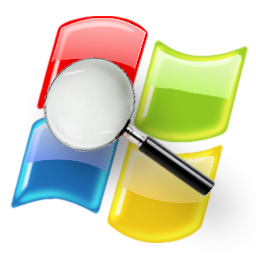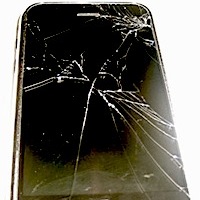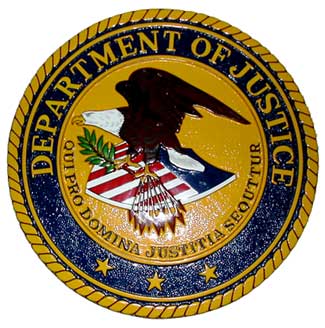
Microsoft should bundle Sysinternals tools into Windows -- or should they?
If you administer Windows systems you must know about Microsoft's Sysinternals tools. If you don't, get started. They're a collection of tools which make administration and troubleshooting considerably easier. They're available on all my Windows systems, and I carry a USB key with the latest version.
Improving Windows Insight

Is new spam scourge coming, as botmasters repopulate networks?
Have you noticed a decline in spam reaching your inbox? Sadly, the respite won't last long. More spam is coming your way.
Today, McAfee Labs released its First Quarter 2011 Threat Report, and there's good news. Spam volumes are considerably lower and it's because of some significant law enforcement victories. Among them: In march, law enforcement, working with Microsoft, took down the Rustock botnet and with it a big chunk of the zombie/bot population.

You hack us, we bomb you -- what's the right way to respond to cyberattacks?
Today's Wall Street Journal discusses the Pentagon's first formal cyber strategy. The interesting part is that it takes the position that some acts of computer sabotage ("cyberattacks") --shudder! I hate that term -- are "acts of war" and may be dealt with through conventional military force.
This is both obvious and frightening at the same time. The idea that you respond with literally lethal bombs in an attempt to shut down civilian or military infrastructure facilities is going to strike many as "disproportionate." There's something to proportionality, but you can take it too far. Recently, Palestinians in Gaza fired an anti-tank missile at an Israeli school bus. Would the proportional Israeli response have been to fire an anti-tank missile at a Palestinian school bus? If you feel you've been attacked wrongly you have every right to hit back hard, is there no good reason to limit yourself to the weapons of the enemy?

iPhone crypto issue isn't all it's cracked up to be
It's been a bad security week for Apple, what with the world of malware finally bothering with Macs. But there was another story: ElcomSoft Co. Ltd., a Moscow computer security firm, announced that it had developed a method to decrypt iOS 4 (iPhone, iPad, iPod touch) file system images. ElcomSoft also will be releasing the product implementing this "...for the exclusive use of law enforcement, forensic and intelligence agencies."
Oh no, another embarrassing revelation for Apple? Yes and no. To put it bluntly, the actual cryptography in the iPhone 4 is not "cracked", nor is it bypassed. The method used by ElcomSoft is brute force, which means that it cycles through all possible decryption keys finding the one that works.

Google starts to pay for shady advertising
The Wall Street Journal reported last week that Google is setting aside $500 million to potentially resolve a case with the Justice Department. The DOJ is investigating whether Google knowingly took ads from online pharmacies that break U.S. laws.
When you run as much advertising as Google does it's hard to police everything. But Google has a history of problems in this regard. In 2006 researcher Ben Edelman examined some of these and concluded that "Google ought to do more to make ads safe."

Microsoft helps stop malware, while Apple blows off malware victims
Yes, it looks like real malware has finally come to Macintosh, and Apple is blowing off users who call for support for the problem. But I'm sure Apple is doing it with style, and that's what really matters. The style of the day is unaccommodating.
If you're not already angry about something, read Ed Bott's blog at ZDNet to see how Apple is handling what appears to be the first real outbreak of malware on Apple Macs in the OS X era. An AppleCare support rep tells Ed that a notice from management tells them that "...we're not supposed to help customers remove malware from their computer."

I'll take Windows and a good browser over Chrome OS
It's point-counterpoint time. In the first of two posts about Chrome OS and Chromebooks, Larry Seltzer argues that Google and its partners are putting "old win in new bottles" -- that Google's cloud-based OS and laptop concept isn't defined by what it can do but by what it can't. Joe Wilcox responds with "Chrome OS is only a failure to people living in the past."
The web as a platform is a really old idea, by tech standards. You really began to hear people talk about it seriously 15 years ago, although of course the tools were primitive then. It was no later than 1998 when I began to see products to implement this, including client systems that were "web-only." I recall terminals from the likes of Neoware and Wyse that were really Linux boxes with a browser user interface as the shell. The Java PC from Sun and IBM was a similar idea in that the client was dumb and manageable and all the software resided on the servers, although it used mainly Java apps. Yes, the web has changed and improved a whole lot since then, but so have client systems and the management of them. This is why the Chromebook is old wine in new bottles.

10 years after they broke up Microsoft
Editors Note: 'What if' hypothetical history follows. The events described in this article didn't actually happen. But they might have...
It was all over when the U.S. Supreme Court refused to reconsider the judgement of the Court of Appeals upholding Judge Thomas Penfield Jackson's antitrust breakup of Microsoft. A shotgun divorce is an ugly thing in business.

The great Microsoft antitrust oversight farce ends
It's a little over 10 years since Microsoft largely won/lost the appeal of the U.S. government's landmark antitrust case. Today, Thursday, May 12, 2011, the oversight regime created by the judgement against Microsoft ends. Can anyone reasonably say that this case made any meaningful difference to the
technology business?
I've always been hardcore, maybe even an extremist, about the antitrust case against Microsoft. I never thought of it as a dangerous monopoly.

We got Osama bin Laden so that malware alarmists can get you
In the light of [NAME OF NEWS EVENT] we are cautioning users to beware of Internet scams and other abuse. Be on the lookout for Facebook messages related to [NAME OF NEWS EVENT], scrutinize search engine results related to [NAME OF NEWS EVENT] and look out for new domain names using [NAME OF NEWS EVENT] to attract your attention.
Oops, sorry folks! I filed my template without filling it in first. My bad.

The Crimes of the Chinese, Foxconn, Steve Jobs and ourselves
I had no idea what I was going to see when relatives took me out in Washington DC to see The Agony and the Ecstasy of Steve Jobs starring -- exclusively -- Mike Daisey. I didn't expect a political polemic. I'm still not totally sure what to make of it. Daisey's style is a monologue, a combination of storytelling and lecturing, just him on the stage. It was a hell of a performance and this was his second show that day.
There are two stories Daisey tells as he sits at a simple table on a complex chair (it's made from recycled plastic and is described in the program). First, he tells the story of Apple and his love for their products. Second, he tells the story of his trip to Shenzhen in China, in particular to the Foxconn facility in the Special Economic Zone, where Apple's magical iPhones and many other products are made. Daisey researched the second story by going to Shenzhen, hiring a translator and faking his way in for a Foxconn factory tour posing as a prospective American businessman. Then he stood outside the fence and interviewed employees on their way out after their shift.

Kidnapped Kaspersky son freed in raid; no ransom paid
Kaspersky Lab has issued a statement Sunday confirming earlier reports that Ivan Kaspersky, son of CEO and founder Eugene Kaspersky, had been kidnapped and subsequently freed. Ivan Kaspersky was freed in an "operation" by the authorities and no ransom was paid.
The statement in full follows: "Kaspersky Lab confirms that an operation to free Ivan Kaspersky was carried out successfully by the Federal Security Service (FSB), the Criminal Investigation Department of the Moscow Police and Kaspersky Lab's own security personnel. Ivan is alive and well and is currently located at a safe location. No ransom was paid during the rescue operation. Eugene Kaspersky and Natalya Kaspersky are currently unavailable for comment."

Eugene Kaspersky is one tough guy
The security community deals with disturbing news all the time, but none so disturbing as the reports that the son of Eugene Kaspersky, founder and CEO of Kaspersky Lab, has been kidnapped (and now reportedly freed). Russia is a tough place.
The Western stereotype of a Russian businessman is a politically-connected tyrant who probably only got his business through corrupt means. Not Yevgeny "Eugene" Kaspersky; I don't really know much about how he built his business, but I do know that his company has developed high-quality, respected security products that sell really well in the West. He's a genuine engineer, who worked on his own products until the company got too big for that to make sense. You can't do that by bribing public officials.

There are millions to be made in the iPhone underground economy
For almost as long as there have been iPhones there has been "jailbreaking," the process of hacking the iPhone so that it will install apps not sold by Apple's App Store. Jailbreaking is popular, so much so that the Washington Post reports that software merchants supplying practitioners make millions doing so.
Cydia, the most famous, in fact dominant, source of jailbreak apps, pulls in over $10 million in annual revenue and has about 4.5 million active weekly users, according to the Post. Developers are making tens of thousands on their apps.

IPv4 address traders delay the Internet's collapse
When Microsoft recently agreed to buy 666,624 IPv4 addresses from bankrupt Nortel you might have asked, at least I did, how this was possible. No mechanism existed in the IP address allocation system for one owner to sell addresses to another.
But now there is, at least for ARIN, the American Registry for Internet Numbers, the authority for allocating addresses for North America and some surrounding territories. Maybe the policy has been there for a while, but ARIN won't say if it has been put to use before.

